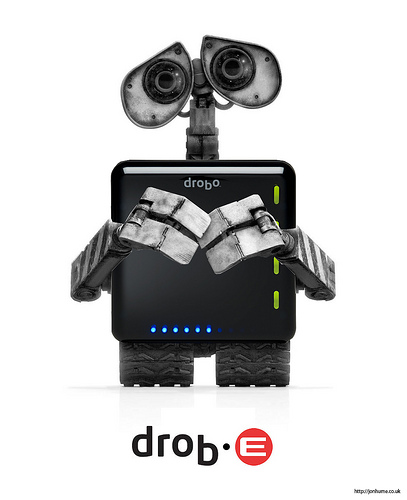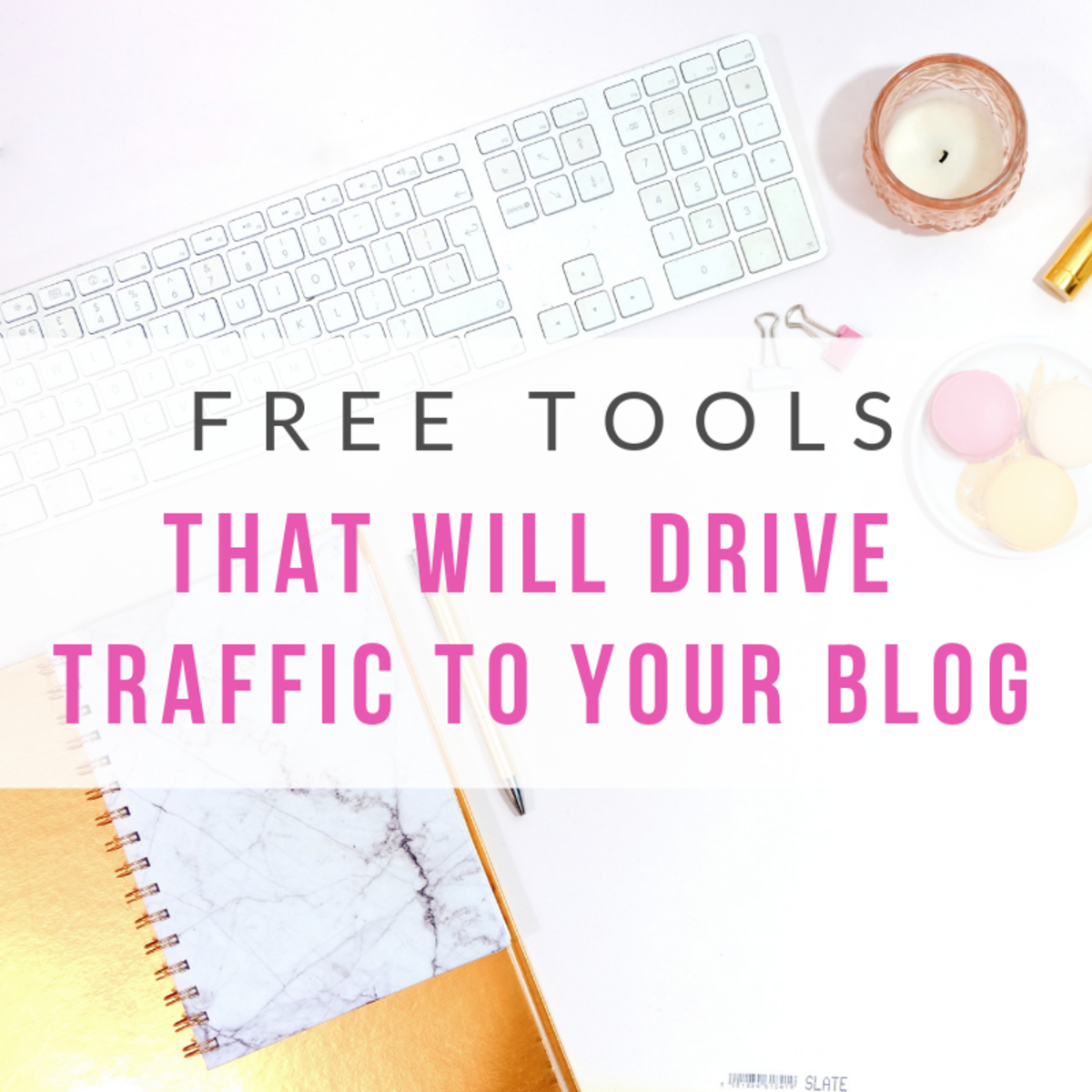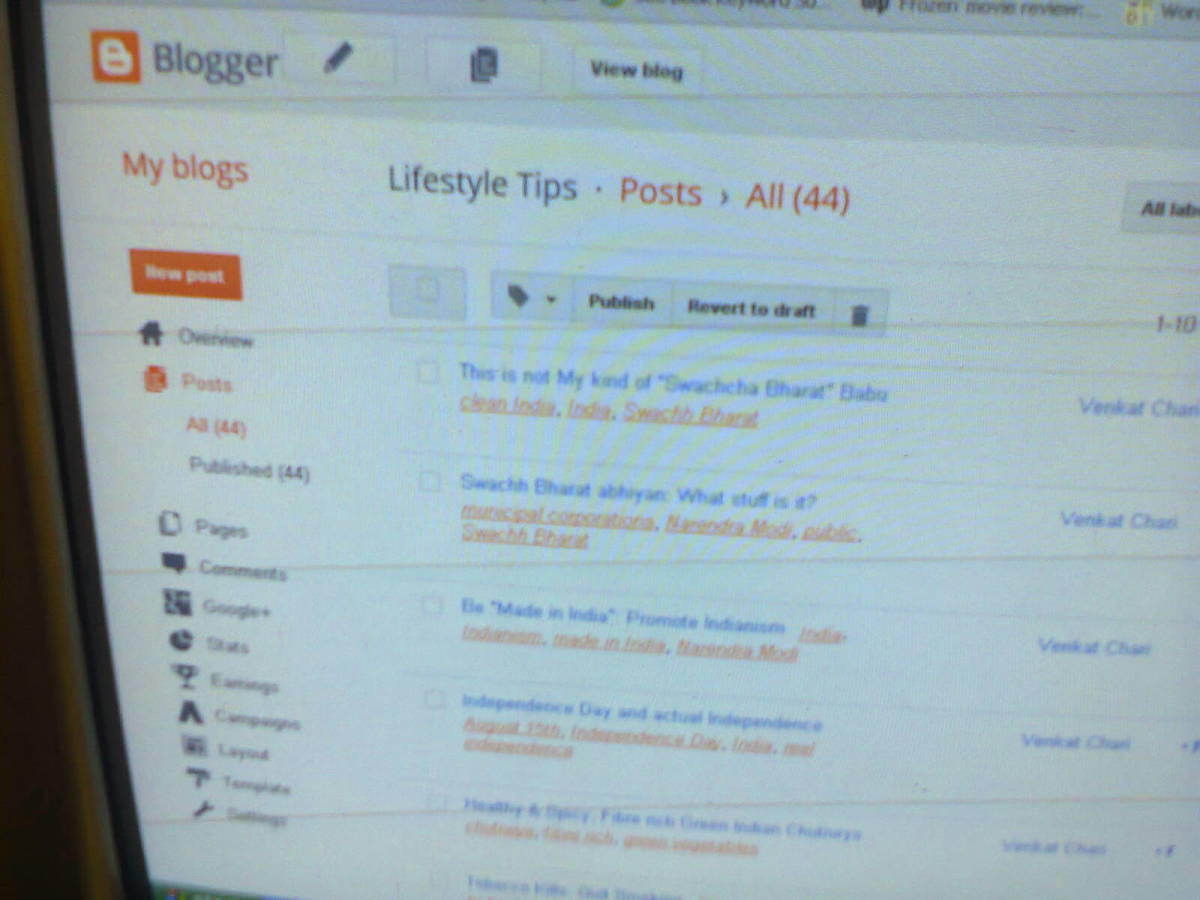Blogs and SEO: What the "Experts" Will Tell You
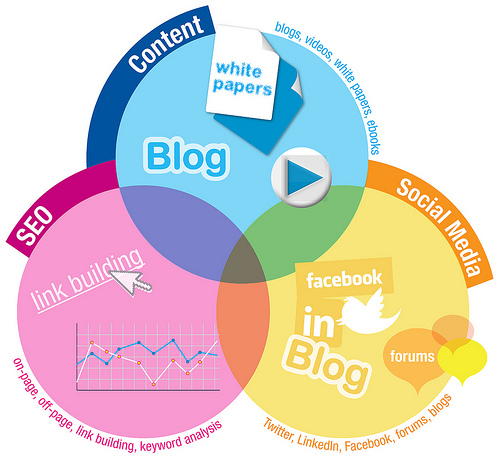
It's a thrill to watch your blog's traffic grow over time, especially after all the work it takes to build up your quality content, tweak the visuals, and figure out how SEO works. It can be a ridiculously daunting task to gain the knowledge you need to configure your blog in a way that causes it to grow, but it's far from impossible, and yes you can do it yourself.
You don't need the SEO companies and so called gurus that charge outrageous sums to tweak your site to optimal performance! All it takes is a basic understanding of SEO, and some experience playing around with the details.
If you want to know what these SEO experts will do after you pay them thousands of dollars to optimize your site, read on.
Configure Your Target Niche

The first piece of advice they'll be sure to offer (hopefully free of charge) is to develop a specific niche. The reason behind this is very logical and vital because of the concept of market saturation. Without getting overly involved in the topic, market saturation is basically when any segment or combined segments of the market become so competitive that it's nearly impossible to break into the market and gain a piece market share while maintaining profit.
Wal-Mart is the perfect example in the retail world; they've grown so big that they have the ability to buy massive quantities at an extremely low rate, and they have such a strong following that they can still maintain profit by selling at an extremely low rate. For small business owners, that means that trying to compete in the retail world is very hard because the market is saturated with Wal-Mart's (and other retail powerhouses) competition.
The good news is this: If I want to sell fishing lures, I can still compete with Wal-Mart by specializing in say, bass fishing lures. Even Wal-Mart in all of its retail power does not have the ability to specialize in every corner of the market, and I can gain market share with good profit by creating this niche.
So if you want your blog to be successful, you have to narrow your focus on a corner of the market that bigger companies are unable to saturate.
Here are a few crazy examples to demonstrate my point:
- The South American Travel Blog
- Non-Profit Leadership Books Site
- Panfishing Lure Information
- Tropical Aquarium Fish
- Top 5 Sports Car Reviews
- Guard Dog Breed Information
- Lobster Fishing 101
- Maternity Coffee Mugs
- The Thesis How-to Site
- Dog Psychology
This list could go on forever, but hopefully the point is clear: There are many unsaturated corners of the market, and to succeed you have to find one.
NOTE: Some of these examples would be horrible niches to follow through on because of lack of demand. Use Google Keywords to get an idea for how much traffic your niche has the potential to attract.
Use Multiple Sources of Media

Google spiders see mathematical equations and eat it up, but people usually operate differently:
We enjoy good visuals; pictures, drawings, infographics, videos, etc.
You get two main SEO benefits from quality media:
- Repeat viewers thanks to enjoyable content: Informational posts (like this one) can sometimes get away with being a bit bland, but if you're able to jazz it up with good media, your audience will thoroughly appreciate it, and will reward you with repeat visits and if you're good enough, a certain degree of brand loyalty.
- Linkbacks: I can say without a doubt that linkbacks are SEO candy - be sure to note that your media cannot be used legally without proper credit. Make sure you make it clear that your media can be shared as long as they provide a Dofollow linkback (google: "dofollow link", it's important) people will link back to your site when they use your media. This will provide you with a boost of search engine credibility and you may even gain some new followers from the site that used your media!
Develop Your Platforms and Connect Everything!

There are many different platforms that you can use to drive relevant traffic to your blog, and it's critical to the success of your site to manage them well.
Here's a list of the best platforms that can bring interactive fans, followers, and/or consumers to your blog (I say "can" because they're only successful if you devote the time and energy into learning how to cultivate them properly, otherwise they're useless):
Article Site
- Hubpages
- Squidoo
- Ezine
Social Sites
- Google +
- Digg
Forums
- There is a forum for just about every niche
Other Blogs
- Again, there are blogs in every category you can think of; just do your best to guest blog on relevant sites, and quality sites with decent traffic
Starting with one platform at a time and immersing yourself in it is the best strategy until you're comfortable with the process, and have developed a strong community. This can take time, so don't expect overnight traffic from your platforms! Once they "mature" however, you'll reap all sorts of dividends that go beyond search engine optimization.
There's really far too many platform benefits to cover in this article, but be sure to research what they are so you have a good understanding of why you're spending the time and effort on these sites.
Connecting Everything
It's not always necessary to connect everything at once (and sometimes it's better to wait until your blog has sticky content before you do!), but you won't see real benefits until you fully connect every platform you develop. Think it over well before you do! You'll likely attract a subtly different following on each platform, and you'll want different audiences to follow links to the most relevant pages on your blog for those particular readers.
When you develop links within each platform, be sure to send the bulk of your audience to your blog, but don't shy away from connecting the platforms to each other; this crossover will only increase your credibility (as long as you have unique content on each platform) and make your audience want to find the main source of your content, which is in this case, your blog!
The Overall Goals
There are really only two major SEO goals that matter:
- On-Site Optimization
- Link-Building
Link Building is First and Foremost!
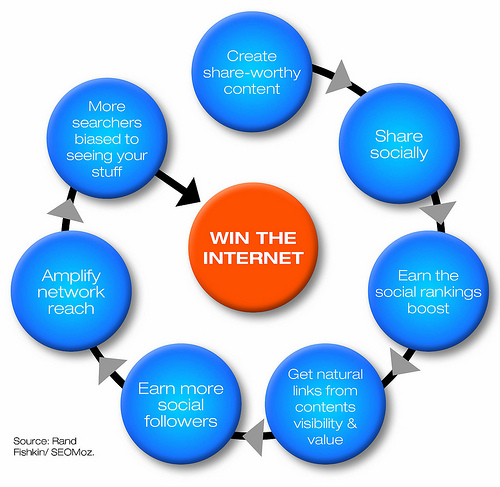
For the most part, everything I've mentioned so far deals with the best practices that will earn the high quality links you need over time. Here are a few more tips about link-building for your blog:
Watch out for gray and black hat SEO gurus: They like to utilize questionable linkbuilding strategies that may seem to help initially, but in the long run are more likely to hurt your blog or website.
The main thing to understand about linkbuilding: Google watches the types of websites that link to you, and if they're high quality, relevant websites, they'll most likely boost your credibility.
Think of websites like your group of friends: The more you hang out with your friends, the more you become like them, and the more other people associate the traits of your friends with you. If your friends are intelligent, you'll probably develop a reputation for being intelligent over time. If they're artistic, other people will eventually begin to think you're artistic.
The same goes for Google - your blog's SEO will be shaped and molded primarily by the blogs and websites you associate with, or more accurately, the websites that choose to associate with you. So every time you get a quality "do follow" link from a website that Google thinks is credible, your credibility will go up in their eyes, and your index ranking along with it.
On-Site Blog Optimization is Vital!
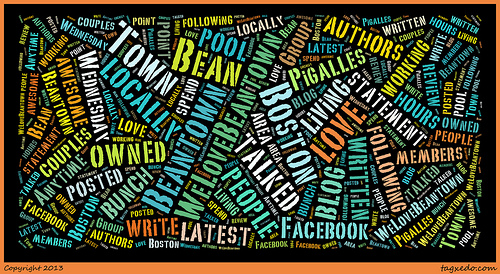
On-Site Optimization is the SEO tweaking you'll do on your blog, as opposed to the work you do outside of it. This part of blog SEO is extremely important, but much easier to do than link building, which is usually a long term, never ending process that blooms over time.
On-site Optimization on the other hand, can be done in a as little as a few days, depending on how much content you have. To keep the principles of blog SEO short and sweet, here's a checklist I would use to make sure my blog's Onsite Optimization is up to par:
- Meta Title Tags: Does EVERY page and post have a strong Meta Title, containing the keywords you're focusing on for that specific page or post? Does it compel the viewer to click through to read the article?
- Keyword Focus and Optimization: Have you been using Google Keywords to find the best keywords to focus each post on? Are those keywords peppered throughout the post in question in a natural and readable manner?
- Tag Relevancy: Are your tags relevant to your content, with the most important keywords listed first?
- URL Optimization: Are your url's relevant to the content, and do they contain your main keyword(s)?
- Effective Titles: Are your titles engaging? Do they sum up the main value of the content? Do they contain the keyword(s) you're focusing on?
- Image Optimizing: Do your images have a description/Alt. description containing your keyword(s)? Do they link to another relevant post? (people love to click on images for some reason)
Final Thoughts
